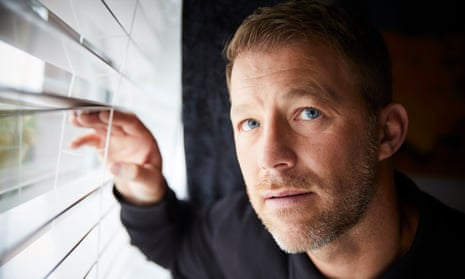Steve Walters is doing his best to crack on with his day even though he has not slept for the past couple of nights. This is not uncommon. For the group of former footballers who opened up last November to reveal their childhood ordeals, sexual abuse at the hands of youth coaches which shaped the rest of their lives, telling their stories has not suddenly made everything better. The impact of the damage goes on.
Walters has counselling and therapy every week. The strain extends to family life. He has a son who plays academy football but feels he has to keep his distance. “I don’t want to impact on his chances,” Walters says. “I don’t want people talking. Kids can be cruel about that kind of thing. I am just trying to protect him. It is difficult.” He is not seeking sympathy, just telling it how it is with unfiltered candour.
Having taken that courageous first step of unlocking the hidden, silent suffering, he and others have discovered that talking helps – sharing, trying to do something positive. Walters, a gifted player at Crewe Alexandra in the 1980s, together with Andy Woodward and Chris Unsworth who also came through at Gresty Road, set up the Offside Trust to try to support victims and promote the cause of safeguarding others.
“Since November I know the FA, parents, everybody and anybody has been extra vigilant but you still get parents who drop their kids off on a Saturday, clear off and come back again. You just don’t know. You have got to be so, so careful. Because of what we experienced in football and sport in general we thought we had a duty to prevent this happening to any other children within sport. I know that is a very ambitious ambition but why not? Why should a child go to football and have to suffer like that?”
Setting up a trust was new territory for the players and they are conscious of making sure the business plan is viable so they are well placed to seek collaboration and funding from Sport England, the Football Association and Professional Footballers’ Association to anyone who wants to help. They have been actively seeking support from professional clubs and current players but it has been a surprisingly hard sell just to get as little as a Twitter follow for their campaign, never mind a message to back the Offside Trust’s ideas. Some have been very forthcoming. Others hit a blank.
They are thankful for those who follow them as a gesture of solidarity but a number of high-profile clubs have resisted so far. Just over half the Premier League clubs follow the Offside Trust but Chelsea, Tottenham, Manchester United and Manchester City are among those who have not. Yet ...
“Initially we just presumed we would get the support of every single player and every single club within the country, even global,” Walters says. “That would be the right thing to do for the sake of humanity. I can understand if they are not sure what the Offside Trust is all about – what its aims and objectives are – so might have been tentative. But we still need more modern-day footballers to support us because there are about 10 to 15 and that’s it. It does disappoint you a little bit.”
The number of active players to speak out remains tiny. Premier League players to show public backing include Bournemouth’s Lewis Cook, Southampton’s Jay Rodriguez, Stoke City’s Charlie Adam and Sunderland’s Jason Pickford but not many more. Why? Is it that the subject retains an air of taboo? Does it make people feel too uncomfortable?
The Offside Trust is pressing on, slowly, step by small step, trying to raise awareness and garner much-needed support. “It’s absolutely vital. We need moral support to start off with. There are other victims out there that need to feel they can come forward.”
The trust wants to be out there as a safe place to turn to for advice or emotional care. “The support mechanism is severely lacking. You are left in limbo so we want to set up a support group. For example, a social worker would go around checking up on people; maybe that is something we can do within a group situation.”
Walters, Woodward and Unsworth had a WhatsApp group for victims to reach out to each other in difficult moments. Unfortunately they have been advised to close it for the time being for legal reasons.
Losing the WhatsApp group might not seem like much but that private forum to support one another became an invaluable personal resource. “You come forward and are brave to tell people your story but after that you are left on your own really,” Walters says. “Sometimes you can feel so isolated, so taking the group down was a shame.”
However, creating the trust and putting energy into it certainly helps the daily struggle of those behind it. “God yes,” says Walters. “Massively. For a lot of the lads involved in the trust it does make a big difference. You have got a purpose in life. It gives you that drive to carry on and beat this.”
Follow @OffsideTrust
The NSPCC’s hotline is 0800 023 2642 and ChildLine for children and young people can be contacted on 0800 1111
The National Association for People Abused in Childhood can be contacted on 0808 801 0331
